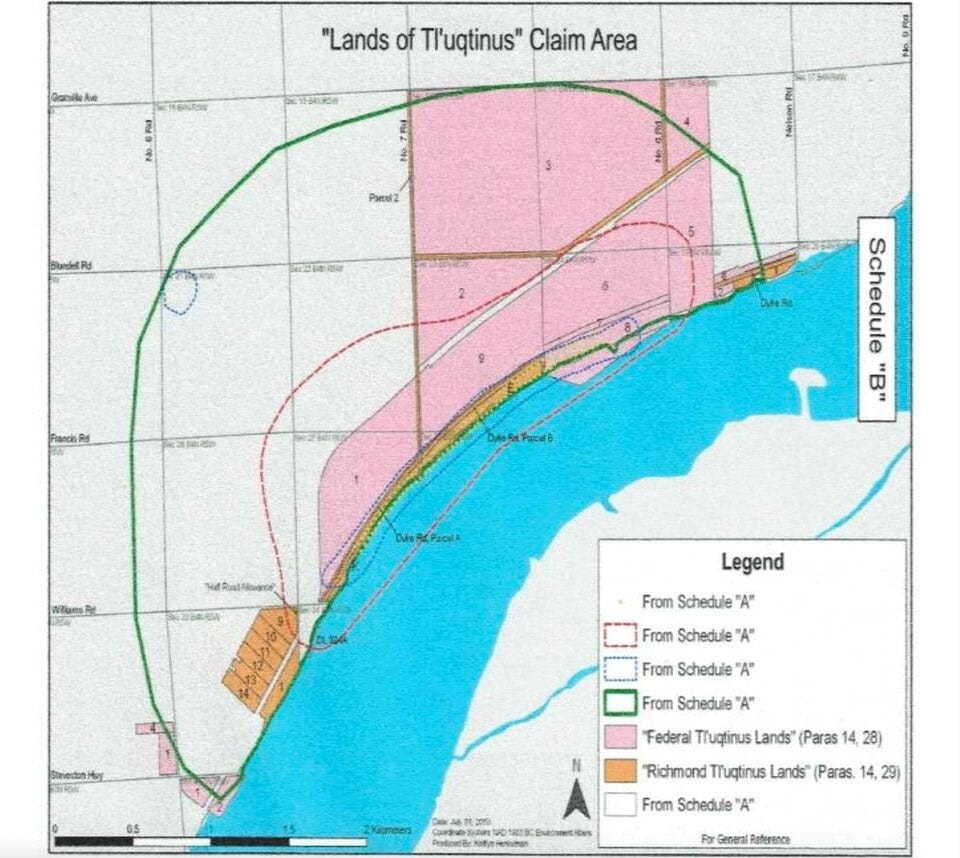DZSURDZSA: Cowichan decision echoes the communism my parents lived through
"Land expropriations are always communist, even when dressed up in First Nations garb."
Land expropriations are always communist, even when dressed up in First Nations garb.
The language might change, and the calls for equality might be rephrased, but the main idea stays the same: private ownership is less important than the tribe. Whether this group is called a “people’s state” or a “reconciled nation,” the result is the same: individual property rights are gone.
A recent meeting in Richmond about the BC Supreme Court Cowichan decision showed how this affects people. Long-time residents, some since the 1970s, directly asked city officials, “What do we actually own now?”
A woman spoke for her elderly mother, whose property line now cuts across the newly declared “green area.” The city lawyer admitted the map was a “best guess” due to unclear judgment boundaries.
Born in Romania six years after the Christmas Revolution and the fall of communist dictator Nicolae Ceaușescu, I see alarming similarities between my country’s struggle against the evils of communism and the subtext of Canada’s current attack on private property rights.
Romania’s land collectivization (1945-1962) was a gradual process. It started by taking land from private estates and giving it to collectives, appearing to be land reform. Eventually, it moved to full state ownership, removing private property protections altogether.
This slow-motion confiscation was cloaked in the language of equality and righting historical wrongs. Sounds familiar?
Under the new system, peasants were told they still “owned” their land, even keeping legal titles. However, ownership became just a piece of paper. Land, animals, and tools became part of collective farms and individual landowners had no say over what was produced, how much was earned or how things were managed.
This mockery of “ownership” intentionally weakened private property. By keeping a small legal pretence, the government avoided major unrest that taking everything outright might have caused. Peasants could hold onto the illusion of owning property, even as their family land was taken from them.
Property owners in Richmond now live in a jurisdiction where their titles are technically recognized yet practically uncertain. Banks and insurers have begun to hesitate. Mortgages are frozen, assessments are in limbo, and homeowners are told to “wait for the appeal.”
In communist Romania, a constitution based on Marxist-Leninist ideology redefined private property as a revocable privilege. The revamped constitution established a hierarchy of ownership: state, cooperative, then private, with private property relegated to the lowest subservient rung.
Eighty years later, a Canadian court claimed another hierarchy of ownership.
The 2025 BC Supreme Court Cowichan decision states that Aboriginal title, based on section 35(1) of the Constitution, is not just equal to, but superior to, fee simple (the basic form of private property in common law).
Private owners are told they may keep their titles, but those titles are now “burdened.” They exist, but subordinately. They are valid, but defective. The wordplay is eerily familiar to anyone who has studied collectivization: a legal right preserved in name but stripped of substance.
Under current jurisprudence, the Crown must negotiate with Cowichan to settle land claims. However, “reconciliation” here isn’t about compromise; it means accepting a system where some claims are superior. Courts have made tribal and collective ownership untouchable.
As in Romania, private ownership has not been abolished on paper. It has been redefined and converted from an absolute right into a conditional permission.
A homeowner may hold a deed, but not final authority. A city may plan its streets, but only at the pleasure of those who hold the superior title, at least according to the courts.
Both systems operate in the same manner: a legal system that prioritises group ownership over individual possession. Both use vague laws to seem legitimate. And both make private rights exist on paper but disappear in reality.
Both use law to undermine ownership while pretending to respect it. Both replace consent with moral arguments like “the people” or “reconciliation.” And both make property a privilege dependent on state or tribe approval.
Once ownership is up for negotiation, property stops being property. It becomes a political tool given out based on the ruling ideology. In Romania, this led to economic collapse and decades of communist dictatorship.
If history is any guide, the destruction of property rights rarely announces itself with expropriation orders. They are masked with appeals to reconciling historical inequalities.
The Romanian peasants were told their land was safe, just as Canadians living in Richmond are told their titles merely need to be reconciled. Both are reassured while the ground beneath them quietly changes hands.





It is pure evil whats happening in Richmond. Thank you for sharing the article - very well written, and hopefully lots of folks read it. Indeed Kanada is well down the path of destroying ALL rights - including property rights. [No more free speech, no criticizing Islamic terrorists or you've committed a hate crime, no protesting for your rights (see truckers) - only protesting proterrorist movements (hamas), support federally for 'kill the jews' movements, etc] It all comes down to wonderful reasons why this Albertan supports a Free and Independent Alberta!
I concur, the people should be outraged and not accepting of this situation.